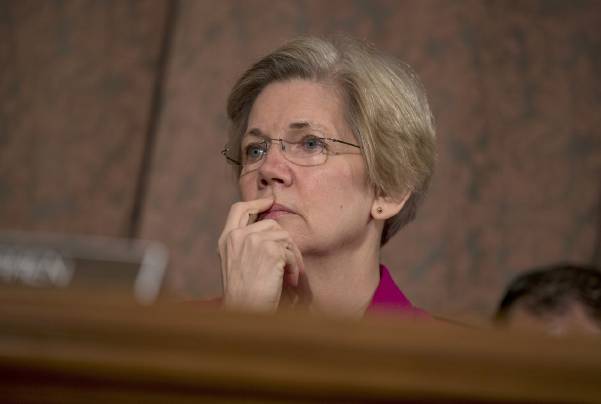As the end of 2013 approaches, the Washington Examiner is taking a look back at the biggest stories and issues of the year. Today, it’s economics.
The future of the Federal Reserved was shaped this year, when Janet Yellen was picked to succeed Ben Bernanke after Democrats in Congress stood against Larry Summers. Elizabeth Warren made waves with her populist push to bring back Glass-Steagall. Democrats and Republicans butted heads on a variety of issues, including unemployment benefits, student loans and what to do about Fannie Mae and Freddie Mac.
Here are some of the top Examiner stories of 2013 on economics:

The White House is annoyed with liberals over Larry Summers
By Joseph Lawler, Aug. 14
When it came time for the president to nominate a replacement for Ben Bernanke at the Federal Reserve, congressional Democrats made an early push for Janet Yellen (the eventual pick) over Larry Summers, who was perceived as the favorite because of his past work with the administration. The White House reportedly felt President Obama’s own party had usurped his authority on the decision.
The most aggressive intervention by Democrats into the process, however, was a letter that a group of liberal senators sent Obama in late July recommending Yellen for the post, a clear sign that the senators were worried by news about Obama leaning toward Summers.
Click here to read the entire story.

Elizabeth Warren introduces new Glass-Steagall bill with bipartisan support
By Joseph Lawler, July 11
The freshman senator made an ill-fated push over the summer to reinstate the Great Depression-era Glass-Steagall law that would separate commercial from investment banks.
The bill marks bipartisan unease with the size of the biggest banks and their importance in the larger economy. “The four biggest banks are now 30 percent larger than they were just five years ago, and they have continued to engage in dangerous, high-risk practices that could once again put our economy at risk,” Warren said.
Click here to read the entire story.

Long-term unemployed face loss of benefits
By Joseph Lawler, Nov. 29
Unemployment benefits to 1.3 million jobless Americans were poised to expire at the end of December after Congress failed to pass an extension to the Emergency Unemployment Compensation program.
It’s a perilous situation for a group that has been uniquely affected by the slow economic recovery. While short-term unemployment is back to pre-recession rates, the job market for the long-term unemployed is still in crisis.
The National Employment Law Project estimates that the 1.3 million long-term jobless who receive benefits will lose them on Dec. 28, if Congress does not reauthorize the Emergency Unemployment Compensation program before then. And 850,000 more workers who would have been eligible for added benefits will use up their regular 26 weeks of unemployment insurance through the first three months of 2014.
Click here to read the entire story.

Republicans, Democrats agree Fannie Mae and Freddie Mac should go — but what’s next?
By Joseph Lawler, July 25
Fannie Mae and Freddie Mac were major players during the U.S. financial crisis of 2008. Five years after the crisis, Democrats and Republicans both agreed that it was time to wind them down, but couldn’t agree on a plan.
There’s good reason for the disagreement: Freddie and Fannie, as private companies sponsored by the government, were always major players in U.S. housing finance. But since becoming government-owned entities in 2008, they have dominated the mortgage market.
Ed DeMarco, the top regulator in charge of Fannie and Freddie, warned in a March speech that the country “finds itself in the uncomfortable position of having over 90 percent of new mortgage originations supported by the federal government.”
